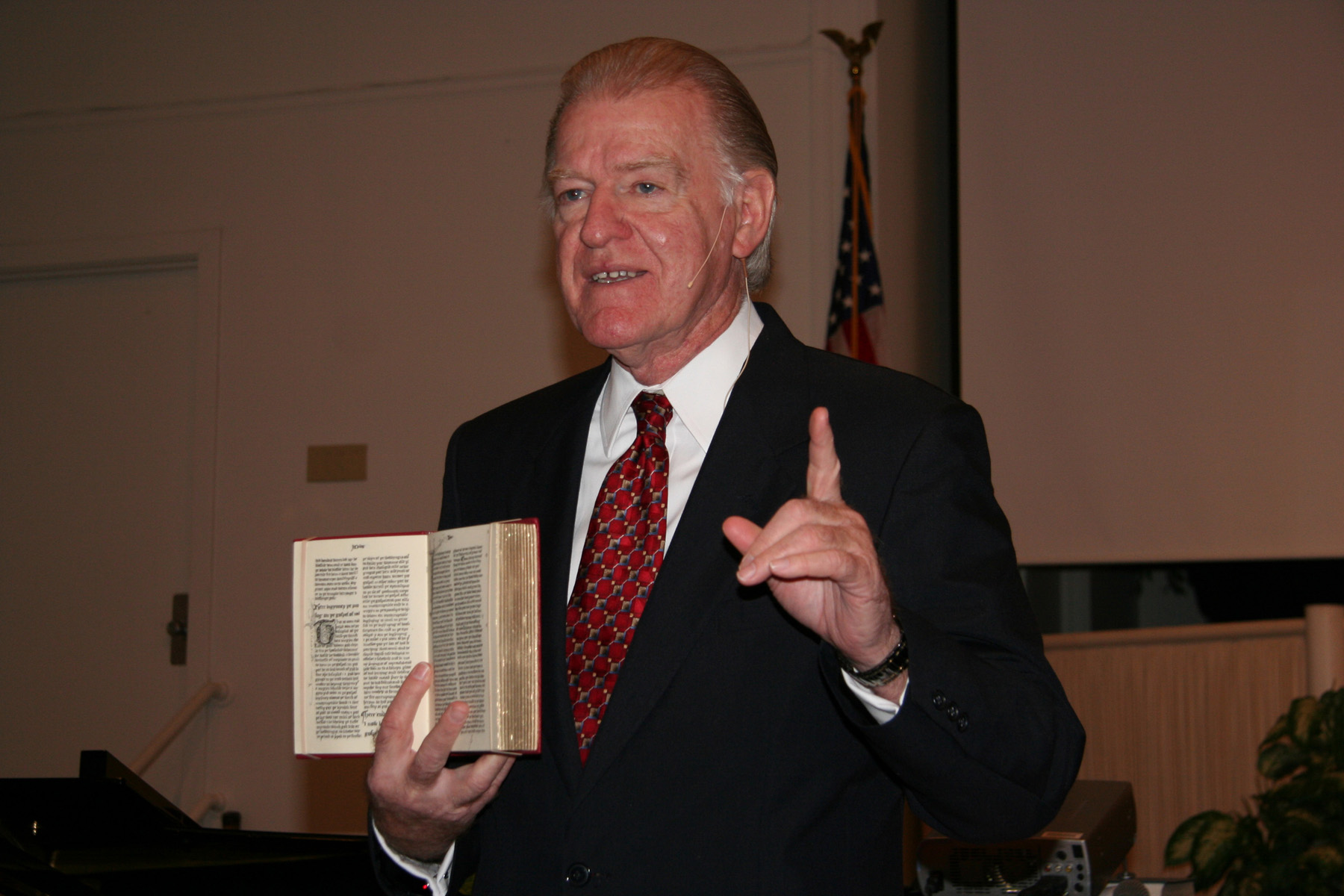
KANSAS CITY, Mo. (BP)–Most Southern Baptists have a Bible within easy reach and many more on bookshelves or scattered throughout their homes. Harold Rawlings knows how to increase the value of those Bibles that often are taken for granted.
Midwestern Baptist Theological Seminary’s exhibit at the upcoming annual meeting of the Southern Baptist Convention will feature a collection of ancient Bibles dating as far back as the 13th century. Rawlings will share the story of how a few determined men risked their lives to produce Bibles in everyday, easily understood English in spite of laws forbidding it.
“It was a costly struggle that resulted in the torture and death of hundreds of brave men and women who refused to buckle under threats of punishment,” Rawlings said. “We are the privileged recipients of their noble deeds.”
Rawlings’ overview will be presented Monday, June 22, at 5 p.m. and Tuesday, June 23, at 1 and 5:20 p.m. at the seminary’s exhibit hall booth in the Kentucky Exhibition Center in Louisville.
After retiring from years of pastoral ministry, Rawlings began thinking of ways he might encourage Christians in areas they know little about.
“We all believe the Bible to be the most important book in the world, but few of us know how it came to us,” he said.
By taking his collection of ancient Bibles on the road to churches and schools, Rawlings offers a visual illustration of the story he shares of lives lost in trying to get the Bible into English.
“People have taken the Bible for granted because they’ve always had one or can easily get one if it is lost. Because of its availability we’ve lost a sense of its importance,” he said. “That’s what prompted me to gather this collection.”
Among the Bibles to be displayed at the SBC exhibit:
— A Latin Vulgate that was handwritten on vellum around A.D. 1230 and served as the basis for John Wycliffe’s translation.
— The last of five editions of Erasmus’ Greek New Testament, printed in A.D. 1535.
— William Tyndale’s New Testament dated 1552 which served as the basis for all subsequent English versions for the next 400 years. Many of these were confiscated and burned.
— A rare 1553 edition of Miles Coverdale’s first complete Bible in the English language. It was the first Bible to be licensed by the king for distribution, completing the work of Tyndale who was martyred.
— A first edition of Matthew’s Bible of 1537 produced by John Rogers, an associate of Tyndale who adopted a pseudonym in order to distribute the Bible.
— The Great Bible, a 1562 edition which revised Matthew’s Bible. Described as great because of its size, it was produced under the guidance of Coverdale. It is also called the Chained Bible because copies were chained to the lectern or table in every parish church in England so people could either read it or hear it read.
— A first edition of the Geneva Bible printed in 1560 and made by William Whittingham and other English exiles in Geneva, Switzerland, during Queen Mary’s reign in England. It was the Bible of Shakespeare, the Puritans and the Pilgrim Fathers.
— The Bishop’s Bible, first printed in 1568 and translated by a committee comprised largely of English bishops. It never replaced the unauthorized Geneva Bible in the hearts of the people.
— The third edition of the King James Bible, which remains popular today.
Rawlings is the author of two books, “Basic Baptist Beliefs,” which addresses the doctrines that distinguish Baptists from most other religious groups, and “Trial by Fire” about the struggle to get the Bible into English.
He received a Ph.D. from Louisiana Baptist University, serves on Midwestern’s advisory group, called the board of regents, and has spoken on several occasions to chapel audiences at the Kansas City, Mo., campus. The Rawlings Foundation, which he directs, continues to support the school financially.
“One reason I accepted the position of regent was that I felt the school’s position on the Bible was very similar to mine. I was pleased that they were using it as the official textbook of the seminary, not questioning it, but being judged by the Scriptures,” Rawlings said.
–30–
Tammi Ledbetter writes for Midwestern Baptist Theological Seminary.

















